Bar Harbor After Dark: Existing in the liminal spaces
Feature
BAR HARBOR—The troubadour with his guitar case positions himself on the edge of the sidewalk by the bars and t-shirt shops, hoping for tourists or new lovers with a dollar or two in cash, giving out songs for free, really, as people meander by.
The sun is setting in Bar Harbor and in the half hour before dark, a family quick-walks on the small roads between the banks. The father and a boy that’s around ten or so are a few paces ahead of the rest of the troop.
“I hate tourists,” the boy grumbles.
“Buddy, we are tourists,” the dad says back without pause. It’s instant truth.
And quick as that they are gone, down the hill and lost to the shadows of the Bar Harbor Inn’s parking areas.
It’s well past the time of cruise ships, which have moved on to their next port, and the congestion on the sidewalks is in one place, dissipates, moves to another. Couples and families and locals with their dogs meander down the Shore Path that runs along the coast of Frenchman’s Bay from Ells Pier to Wayman Lane. Some quick walk, sandals and running shoes and flip-flops displacing tiny bits of gravel. Some stop and stare at the schooner, the Margaret Todd coming in.
Inside the Criterion Theatre, a Chamber of Commerce Business After Hours event has just ended and a Bar Harbor Music Festival concert, with conductor Francis Fortier, has begun. The sounds of an orchestra filling the art deco theater that has survived in this town of just over 5,000 year round residents year after year after year since 1932.
“The music is swoony,” says one listener. “It was last year.”
Chuck Colbert works sound, positioned at the board in the back of the theater, creating acoustic balance one level at a time, trying to find just the right resonation for an orchestra that has so many parts—almost like the town itself. There are year round residents; tourists; people who were born here; people originally from away who live here too; people who come for the summer and live on a side of affluence many dream of; people who make the decisions; people who bemoan the decisions; people who serve; who struggle to find a home of their own, a place they don’t have to share rooms with strangers who end up having to become friends; people who run the restaurants and shops; people who frequent them; people who complain the town is too busy to visit, but still do.
If you move out of downtown proper and into the larger part of Bar Harbor, you find a Bar Harbor that a lot of visitors don’t see. Campgrounds spread along shores. Neighborhoods linger on curvy roads that stretch to the water. Labs host innovation and discovery. A basketball net has a permanent place on the edge of a roadway in front of a white house. A College of the Atlantic student, here all summer, sings indie-folk from his stoop by the YMCA’s backlot where an RV is parked for summer housing. A couple inspects their flowers that they’ve planted along the borders of their lawn. Lobster traps stack up in a side yard, bringing their sea smells with them as the fog rolls in. Deer chomp on bushes and mingle with wild turkeys off the Cromwell Harbor Road, just at the edge of the national park.
A woman talks to people about potentially walking her dog. Strangers give each other directions. A businessman sitting inside a local bar frantically, but also somehow confidently, whistles at a car driving down a road without its headlights, oblivious to the fact that it is traveling in darkness. Another man, listening to music, but not inside the building, finally gets the driver’s attention and she turns the lights on.
When live music at the Annex ends, a man in a leather vest (despite the late July humidity) asks where he can go next.
“The Finback,” everyone says.
“The Finback it is,” he repeats and pauses. “Uh? Where is that?”
Soon he’s shuffling down the center of Rodick Street headed for Cottage, ignoring the sidewalks and choosing the darkest place instead.
In one of Bar Harbor’s many restaurants that also supports a bar, one bartender explains his idea. There’s a Neil Gaiman book and there’s an underworld in it—a world that runs beneath the normal world, a world that nobody really sees—that’s what the Bar Harbor world of restaurant workers is like.
“Nobody sees us,” he says. For a moment, he is forlorn and serious and then shifts back into jovial bartender mode and teases, “We’re the underbelly.”
The hostess laughs.
At the Annex on Rodick Street, people stare through the open windows, listening to music. A family of three with two Great Pyrenees, giant, white, fluffy dogs, stop and talk for a while. A woman at a table reaches out to pet them. The space between the restaurant and the street is broken. People speak and touch over the threshold. The same thing happens at the Finback. The same thing happens at the Ivy Manor as people gather around fire pits and listen to music in the afternoons.
Liminal spaces are thresholds. And sometimes towns like Bar Harbor are, too. Places waiting on decisions about cruise ships, seeing who its next police chief will be, waiting for a new school and massive infrastructure changes, shifting between the busy times of summer and winter, placed on the threshold between the small mountains of Acadia National Park and the ocean.
Liminal spaces are true spaces, places that Gaiman might explore in his novels, but they are also transitions, thresholds, places or people who are going from one change to the next. And those changes? They can be hard and feel lonely.
But they also can be beautiful.
At Bar Harbor’s town pier, steps away from a $35 million yacht, Kisses, the property of car dealer billionaire, Norman Braman, a man and his son fish. The son is doing better than father is currently, reeling one in, bouncing a bit on his toes in joy. This one is big enough for supper. They exist on the other side of wealth like Braman, a former owner of the Philadelphia Eagles, and head of Braman Enterprises. Between them, tourists take selfies, locals walk swiftly getting in their steps, moving through that space at the end of the land, right before the precipice of water, confidently through the spaces.
All photos: Carrie Jones




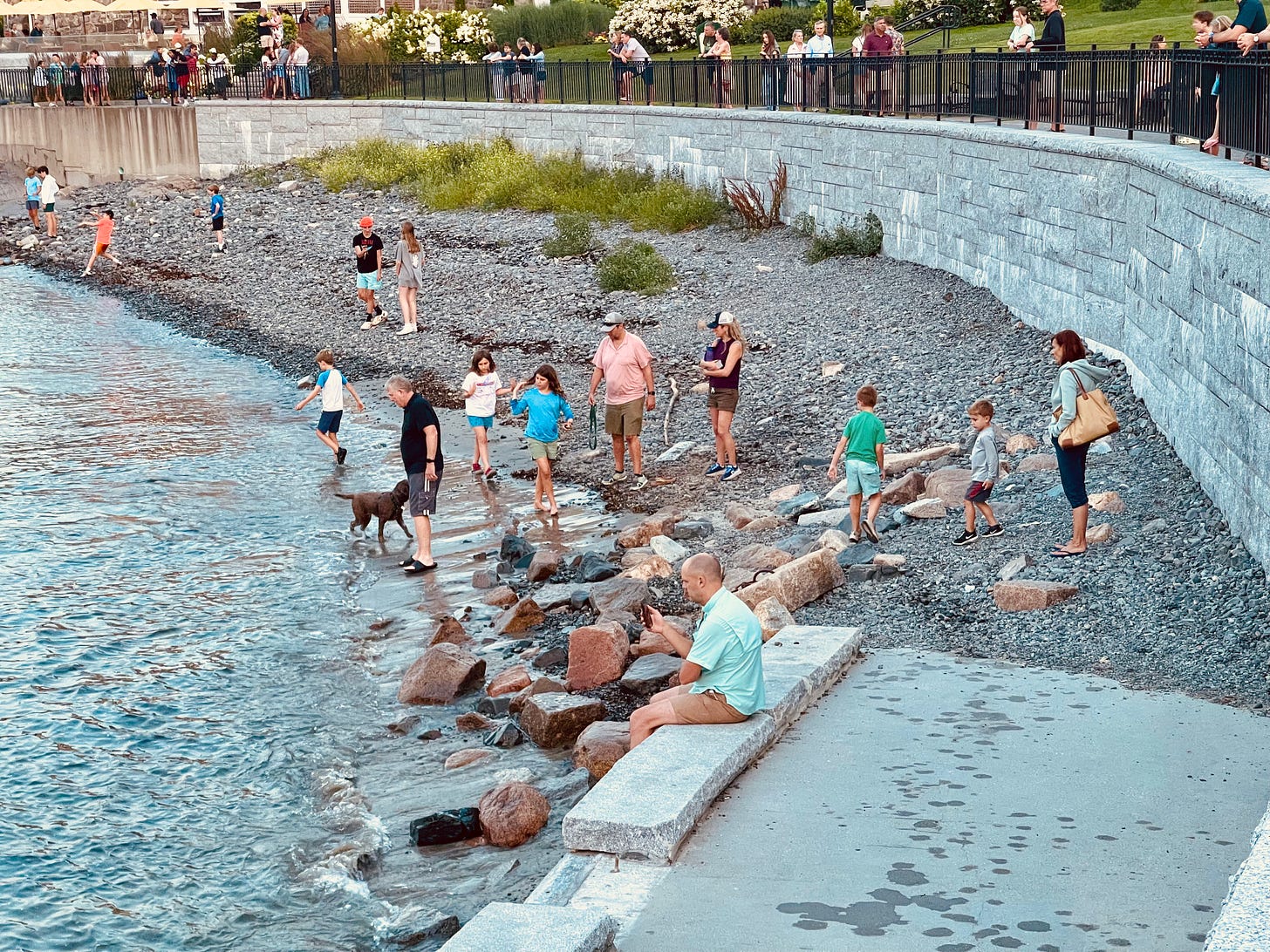

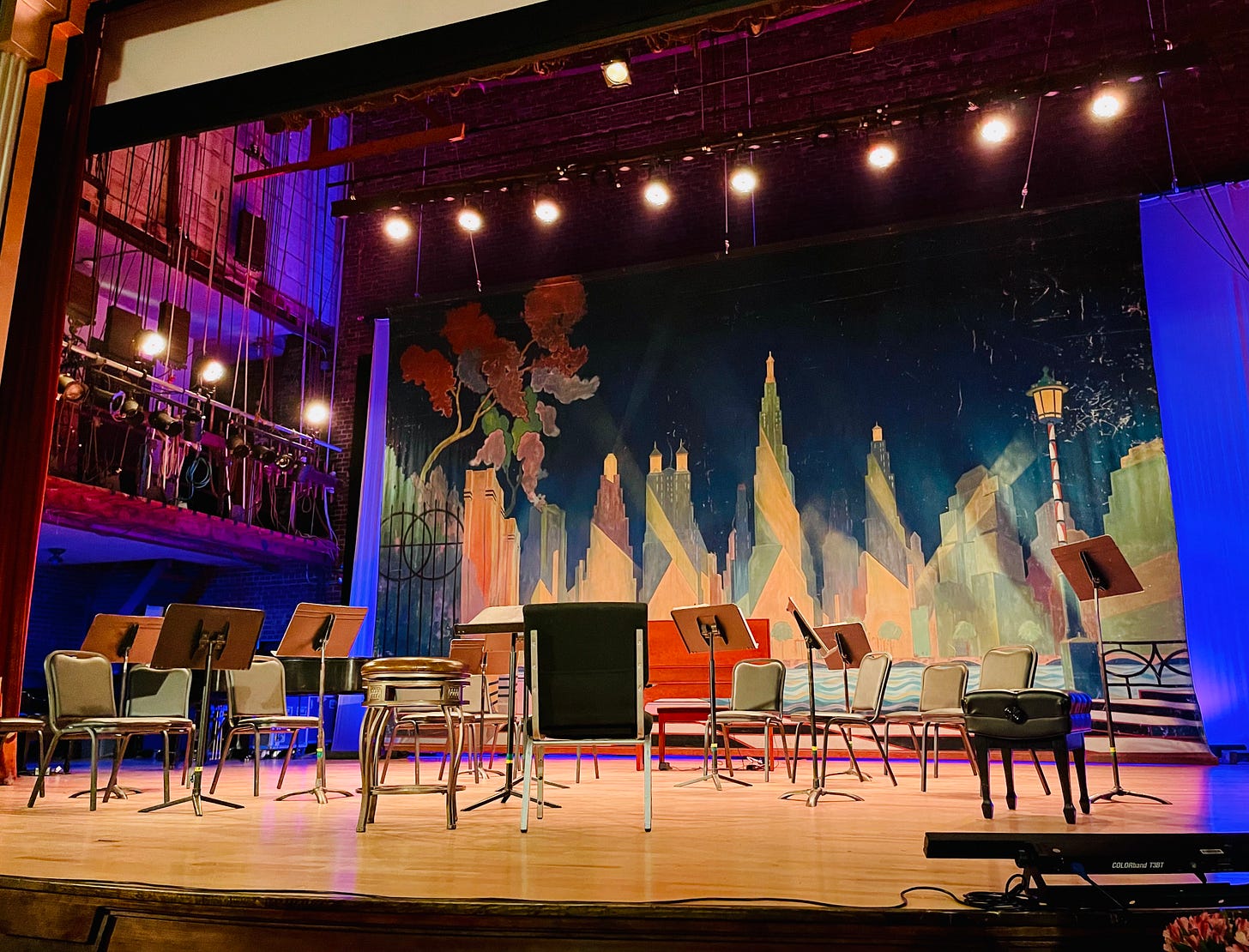
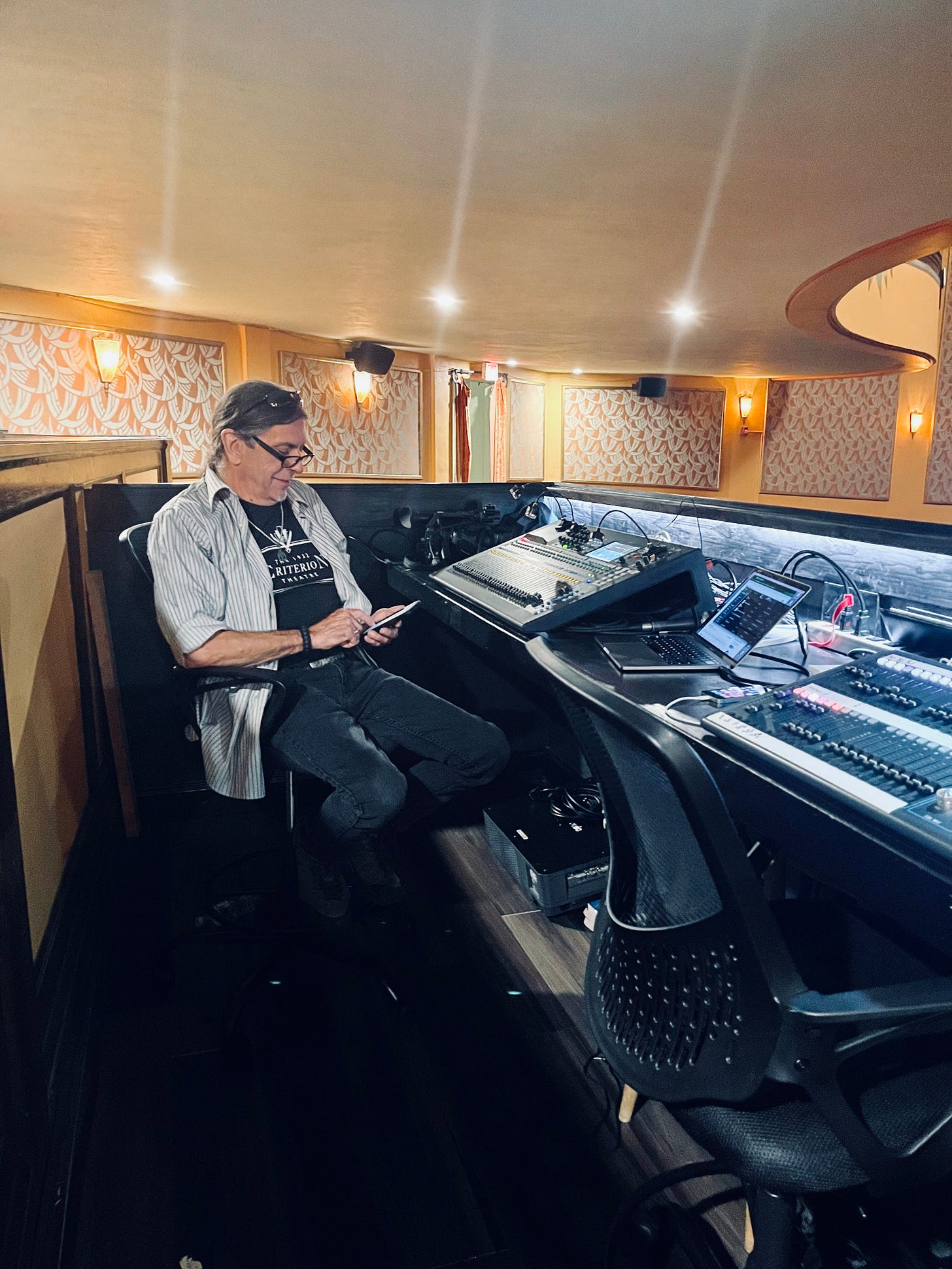

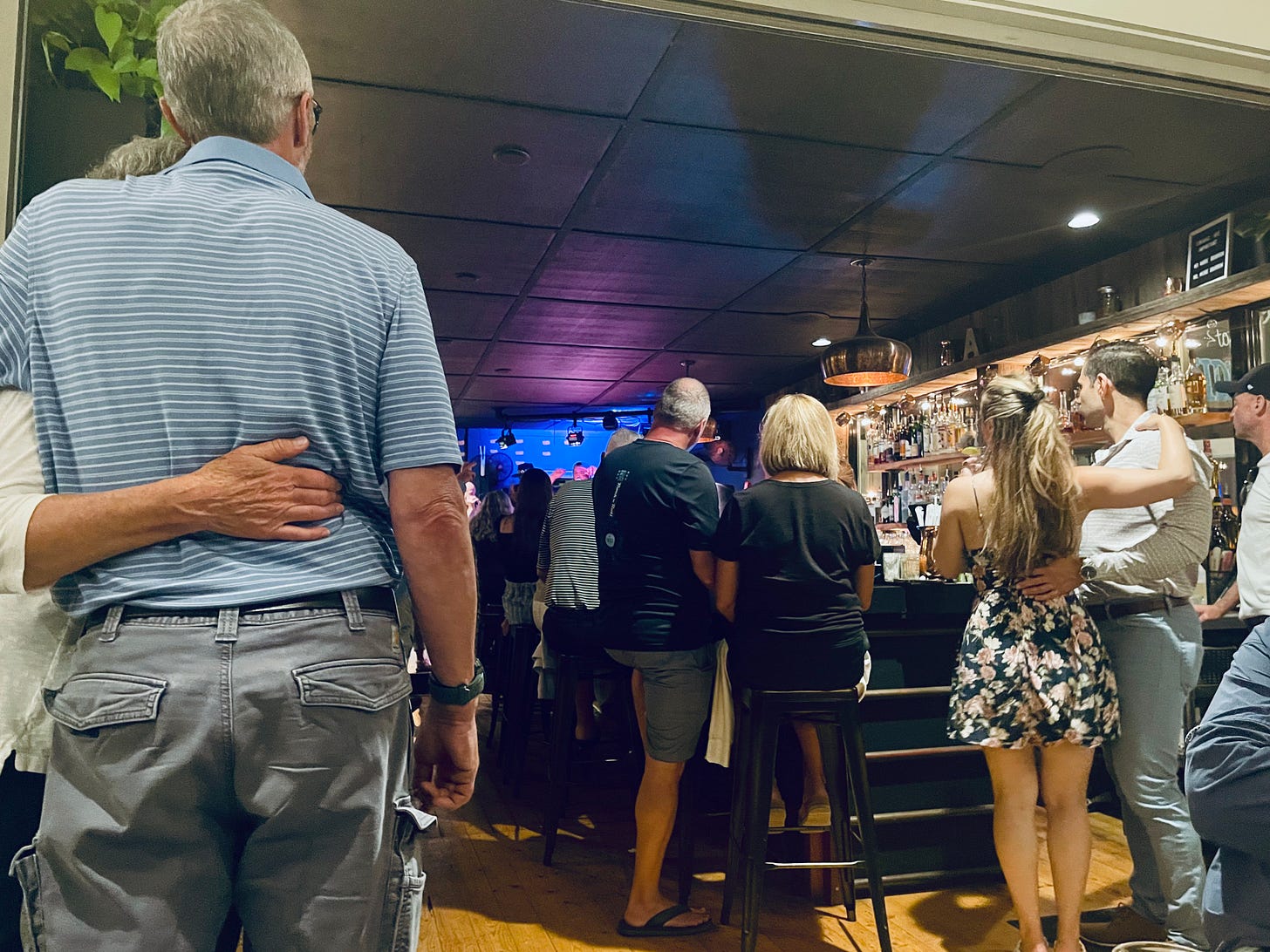
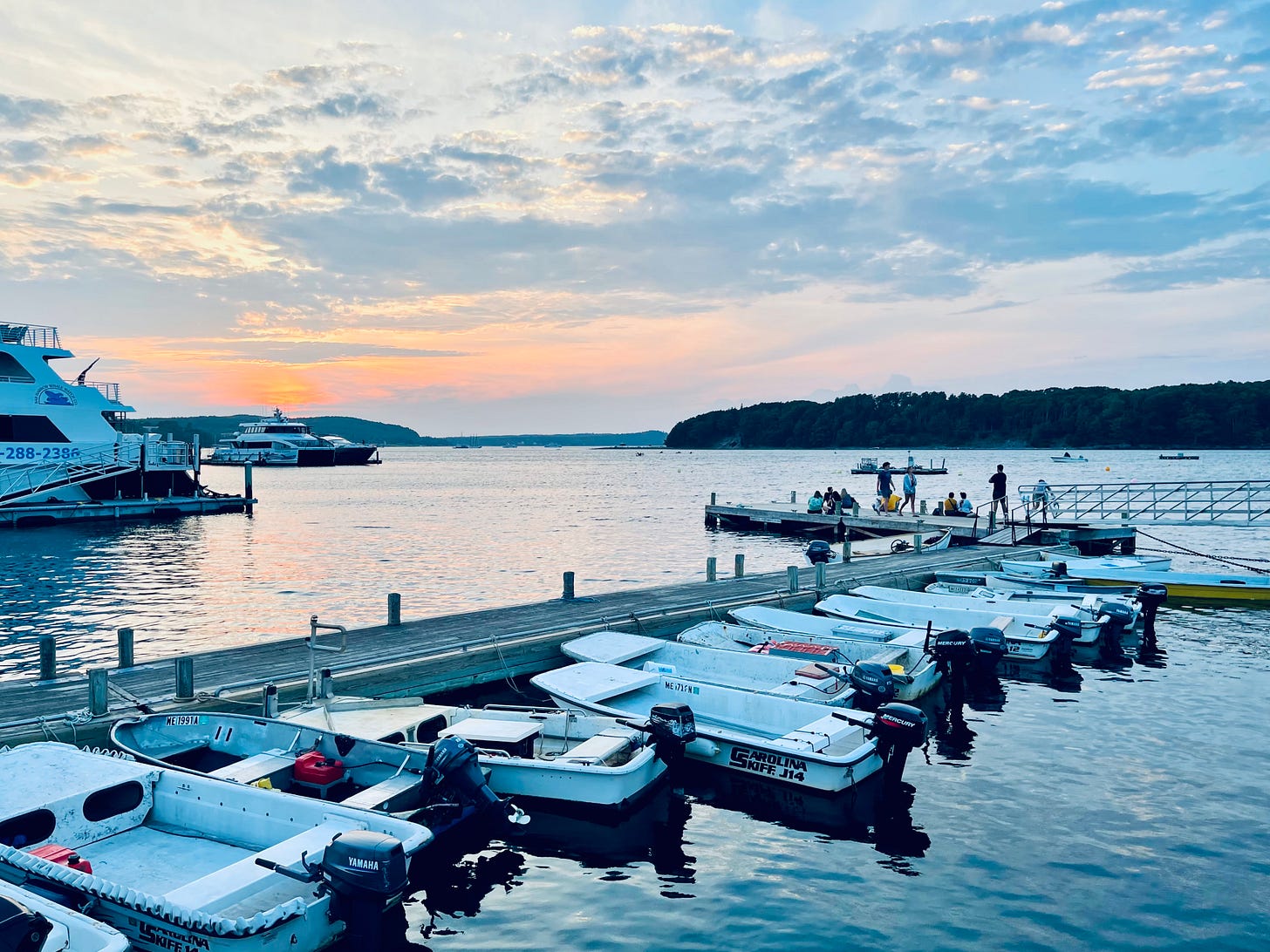


Thanks for the continued support and mentions of what we're doing at finback!
Nicely done